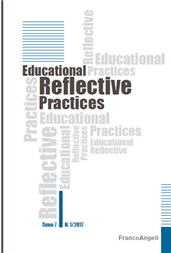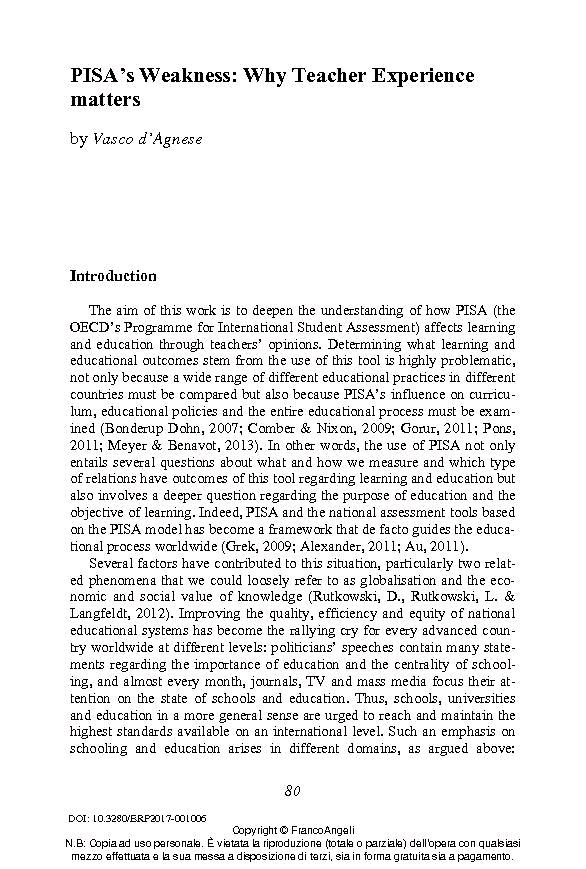PISA's Weakness : Why Teacher Experience matters
80-95 p.
The aim of this study is to deepen the understanding of the ways in which PISA (the OECD's Programme for International Student Assessment) impacts learning and education by analysing teacher feedback. Central to this study is the belief that teachers' knowledge and experience are legitimate resources for assessing, correcting, and updating a) educational policies and b) curriculum and educational practices. The research involved 39 secondary school teachers who taught 15-year-olds in three urban schools. Each of the teachers had been in service for between 8 and 35 years. The research was conducted in southern Italy in three high schools chosen from the PISA sample.
The research design combines semi-structured interviews, group interviews, and group discussions conducted with teachers involved in PISA, either as references or as teachers of classrooms involved in the PISA survey. Based on the data, PISA raises five problems: a) a learning problem: students learn to respond to a pre-specified problem rather than to develop their own inquiries, and they are not stimulated to develop meta-awareness about their own learning processes; b) a relational problem: the relationship between teachers and students is established externally and framed by the test; c) an educational problem: the role of education in helping students face the unforeseen is denied by PISA; d) an assessment problem: one tool is not sufficient to undertake a complex task such as student assessment; and e) a problem concerning the role of schools, teachers and democracy. [Publisher's Text].
Fait partie de
Educational reflective practices : 1, 2017-
Articles du même numéro (disponibles individuellement)
-
Informations
Code DOI : 10.3280/ERP2017-001006
ISSN: 2279-9605
DISCIPLINES



